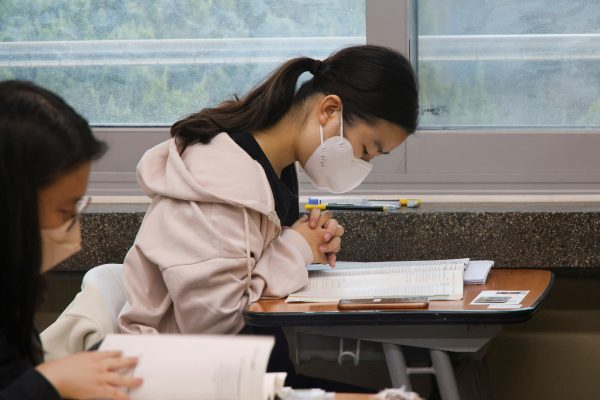This initiative, which is set to officially launch in 2025 following a two-year pilot phase, is centred around the ‘Glocal University Project’. This project will see 30 universities located in regional areas throughout South Korea selected for additional support. These chosen institutions are set to receive funding of 100 billion South Korean won (approximately US$76 million) over a five-year period. This support will aid in their transformation and bolster their capacity to compete on the global stage while still addressing local needs.
It’s a pivotal moment for South Korean higher education in the race for global prominence. As the wave of digital transformation sweeps across the globe, realising the need for an evolution of higher education policy is critical for South Korea’s national competitiveness.
A central challenge is ongoing disparities in the accessibility and equity of higher education. Despite various efforts, an entrenched divide persists between urban centres like Seoul, home to prestigious universities and resources, and non-capital regions. This educational chasm leaves students from non-capital regions grappling with limited access to quality education and dim job prospects.
Fairness in college admissions remains contentious, amplified by incidents like the ‘Cho Kuk scandal’, in which former minister of justice Cho Kuk and his wife were accused of forging their daughters’ portfolios for admission to an elite university. STEM-focused high school students have reportedly begun applying for humanities and social sciences courses at top universities due to their perceived easier admissions thresholds. Finally, the country’s reliance on private education amplifies socioeconomic disparities, further widening the gap between top-tier and non-capital universities.
The issue of quality management in higher education also warrants attention. Critics decry the system’s failure to foster critical thinking and problem-solving skills, pinning the blame on the educational environment and flawed pedagogical approaches. In a country where the supply of degrees outstrips demand, but demand for ‘prestigious’ university degrees remains high, the focus has historically been skewed towards admitting outstanding students rather than nurturing them. Government policies prioritising research outcomes and quantitative measures have led to quality management being neglected.
Governance and management form another roadblock. Centralised decision-making by the government in higher education stifles institutional autonomy, hindering university innovation and adaptability. Some critique that the bureaucratic control exerted by the Ministry of Education, primarily through financial support programs, restricts universities’ self-reliance and competitiveness.
Internationalisation and global competitiveness pose significant challenges. Despite concerted efforts, a significant number of domestic universities still fall short when compared with their top-tier global counterparts — hindered by limited networks, research output and language barriers. Recent regulatory changes allowing degrees to be awarded entirely online have opened new avenues, such as the upcoming opening of Taejae University, a new institution modelled after the United States-based online provider Minerva University.
But the COVID-19 pandemic and the resultant blur between online and offline higher education have eroded public trust in education quality to some extent. This trend could potentially fuel brain drain, threatening South Korea’s long-term talent retention.
Institutional autonomy for universities is crucial. Current government policies do not sufficiently support university self-reliance and this could yield subpar results. The inception of the University Deregulation Innovation Bureau is a positive step towards granting more autonomy. But it’s essential that the South Korean government continues to maintain a balance by delegating authority to the market or to expert groups. The establishment of the RISE Centre at the National Research Foundation, aimed at supporting the national blueprint, marks a promising beginning.
To counteract brain drain, strategies must be devised to attract and retain top talent by providing competitive salaries, research funding and career development opportunities. A blend of national policies is vital to transform brain drain into brain circulation — motivating talents educated abroad to return to South Korea and contribute to society.
Comprehensive policy support is also necessary for the transition towards more innovative models of higher education, including digital universities, transnational higher education and collaboration with high-impact global entities like massive open online courses. In this regard, the opening of Taejae University, scheduled for September 2023, merits substantial attention.
Promoting diversity, equity and inclusion in higher education is another critical step. As internationalisation gains momentum, universities should strive to attract a more diverse student body to combat population decline and infuse diversity into South Korean society.
As the global higher education landscape continues to transform, it’s crucial for policymakers, researchers and experts to collaboratively devise innovative, evidence-based policies that align with international trends and standards.
Addressing these multifaceted challenges requires the clear demarcation of higher education administration and policy as distinct fields of practice and scholarly research. It is essential to acknowledge the study of higher education as a unique academic discipline.
South Korea’s higher education system is at a critical crossroad, where pressing challenges and emerging opportunities converge. This transformative juncture opens the door to a future where the nation’s higher education system could not only match but also potentially surpass the most innovative educational landscapes globally.
Kyuseok Kim (Mick) is PhD student in the Department of Education at Korea University, with a focus on Educational Administration and Higher Education.

